Publishing date: Jul, 15, 2020
Industry Insights is a new series where we ask industry leaders to give us their tried and true advice for success in the music industry. From songwriting and recording to getting your songs heard by execs, to live shows, touring, and everything in between, we tap into our Rolodex of music industry heavyweights and innovators for their expertise. Stay tuned for more knowledge and slide into our DMs with your Qs—we’ll bring them to the pros.
When it comes to home recording, the resounding answer when asked whether it’s possible to create a decent product without expensive equipment is: absolutely, yes. There are many ways to commit your music to tape, from something as small and simple as an iPhone to vintage 4-Track Reel To Reel Recorders.
While expensive gear can make your music sound exceptional, Vancouver R&B artist Biawanna believes that a decent home recording needs to start with a decent song or concept. “What’s going to make you stand out is your creativity and resilience,” she says. Or if you’re like celebrated indie-folk songwriter Chad VanGaalen, you’ll just keep the tape rolling so when that moment of brilliance strikes, you won’t miss it. As Jordan Koop at The Noise Floor Recording Studio reminds us, Daniel Johnson, Elliot Smith, Beck, and even Billie Eilish all made incredible albums at home with modest gear; a reassuring thing to keep in mind.
So what happens when you’ve got your impressive new track written and think you’re ready to press record? Let’s check in with the experts to discover how to make that song of yours live long and prosper.
Mac DeMarco
(Singer-Songwriter/Producer)
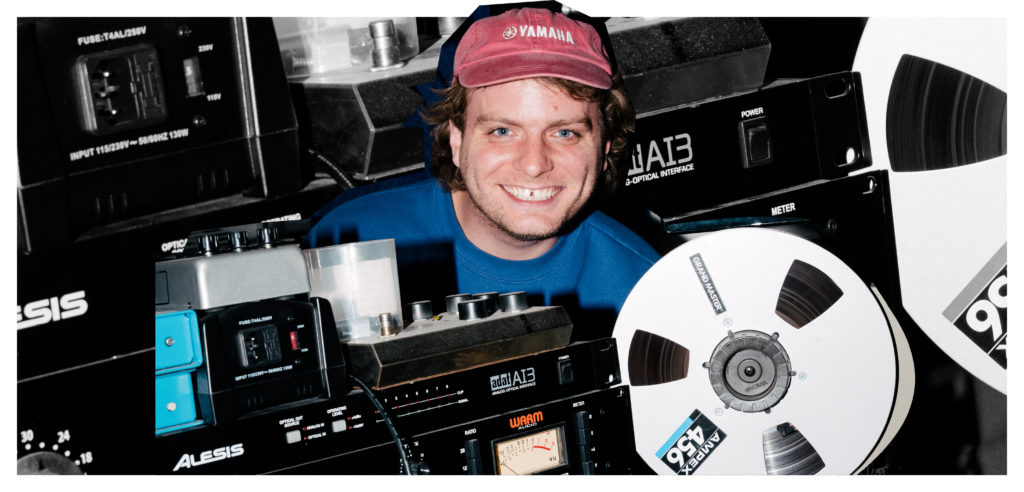
What is your setup when recording at home?
I have a pretty insane little studio at my house nowadays. I think most would say very, very overkill, but I like recording and am interested in [it], so I try and get as much gear as I can that interests me. I have a bunch of computer-based recording stuff, lots of old microphones, a bunch of instruments, a bunch of tape stuff too nowadays. It’s all crammed into a little converted garage behind my house.
What are some tips you’d give to musicians who are new to home recording?
Just go for it. Plug stuff in and see what you can get out of it. As long as you’re not destroying the equipment and you like the way it sounds, you’re in the clear.
What recording equipment do you swear by?
Having gear you’re accustomed to is most important. I think having tools you understand and know how to utilize will get ya the furthest. If you’re just starting out, I wouldn’t worry about how tech your setup is. Home recording hardware and software are accessible and affordable these days and sound pretty good too.
What are the benefits of recording at home vs. in a studio?
In my experience, you get something a little more organic from doing things at home. Maybe I’m just shy or unsure or something, but I feel like half the stuff I do on my own wouldn’t come out of me if I was in a commercial tracking room with some stranger behind a board in the control room. Not trying to diss studios, I think they’re great, but readiness is key. At home, I can sit in my undies, eating cereal and jamming away, not staring at a clock worrying about the money I’m paying per hour. That’s just me though.
Who do you look to for inspiration in your home recording techniques?
There are tons of books and resources on famous studios and recording techniques from around the world. A lot of places got famous for a lot of different things; maybe it’s how the live room sounded at one spot, or the sound they got out of the reverb chamber at another spot. A bunch of old studios were flying by the seat of their pants and trying weird things all the time—a lot of these things you could even do at your house. I built a reverb chamber in my basement after reading a bunch of stuff about the Motown and Capitol reverb chambers. Boom, there ya go.
What is one app that everyone needs?
Any guitar tuner app.
Once you’ve got the songs recorded, what’s the next crucial step before sharing your creation with the world?
It depends what you’re after. If you’re stoked on what you [have] then I don’t see why you wouldn’t just chuck it on the web or wherever. I’ve been doing that since I started making recordings. Nowadays, I’ll record an album at my house, send it out to mastering, then it goes over to the label, and then it’s out in the world after a couple of months of press crapola and run-up bologna. But at the same time, if I make a song one day that I’m into and don’t really feel like it’s gonna wind up on some album or something, I’ll just whack it up on my YouTube channel.
Biawanna
(R&B Songwriter/Producer)
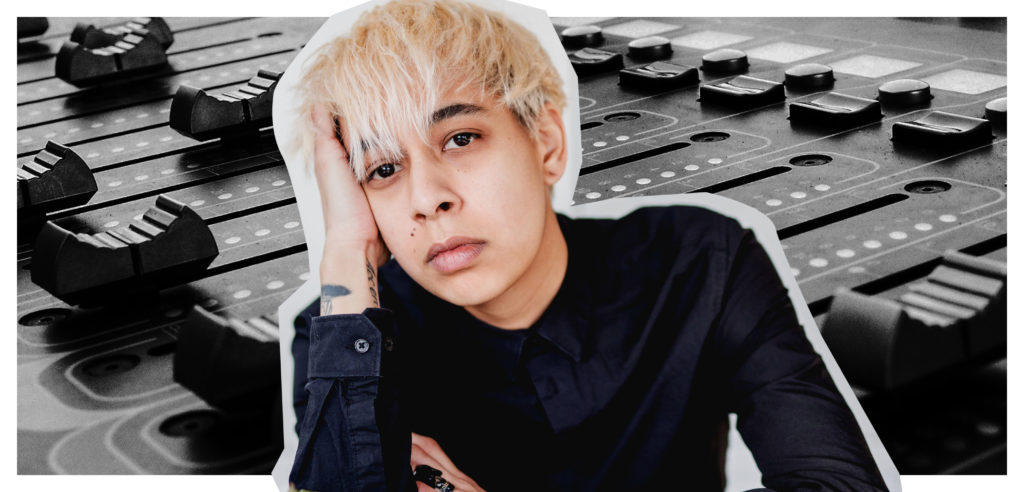
What is your setup when recording at home?
I have Logic, decent headphones, a couple of mics, pop filter, HS8 speakers, MacBook Pro, acoustic and electric guitars, ukulele, midi keyboard, a sampler, and an audio interface.
What are some tips you’d give to musicians who are new to home recording?
Create a list of what you need and do your research. Keep an open mind and don’t be afraid to try new methods. If you need help, reach out to someone who is more experienced.
What are the benefits of recording at home vs. in a studio?
With technology now, you can make your recordings sound like they were done in a studio at home. Listen to Billie Eilish’s Grammy Award-winning album, When We All Fall Asleep, Where Do We Go? That was recorded in her bedroom studio.
Who do you look to for inspiration in your home recording techniques?
My talented and hard-working friends des hume and Masherman. Hearing and valuing others is the greatest gift you can give to your community.
What is one app that everyone needs?
You can learn more than you think from tutorials online. There are a lot of producers on YouTube, like my friend Larry Ohh, who offer free tutorials and sample packs. Splice is also pretty good. There are tons of samples constantly being uploaded, and they have some decent monthly payment plans. Knowledge is at your fingertips!
Chad VanGaalen
(Indie-Folk Songwriter/Producer)
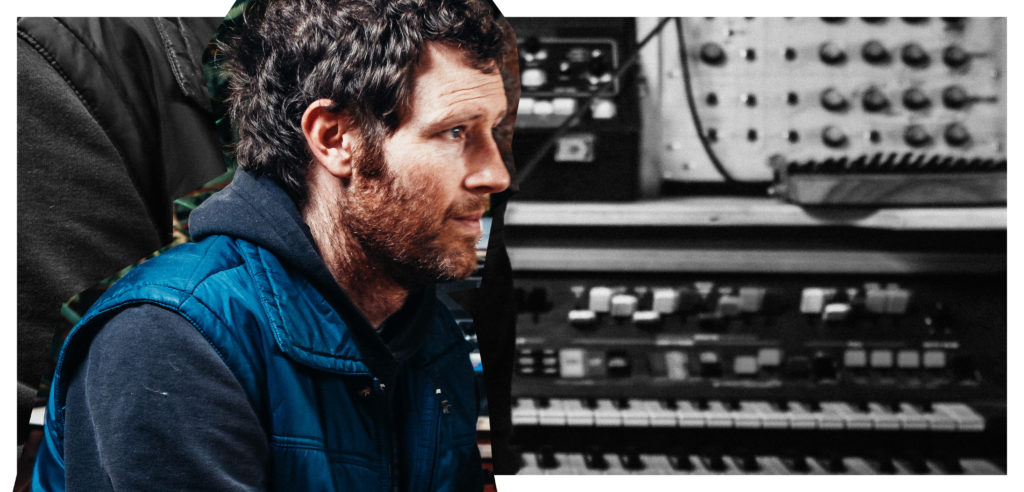
What is your setup when recording at home?
My setup is 1000 times more elaborate than it used to be thanks to my eBay and Kijiji addictions. My main recording device is my Tascam 388 (recording bones) and my MacBook from 2005 (mixing and pepper).
What are some tips you’d give to musicians who are new to home recording?
Don’t believe the hype. An infinite amount of gear exists and really to have great ideas and get them out of your head you don’t need much these days. I have an old Panasonic cassette recorder that I use for demos. I picked it up for $5 at a thrift store. It’s great because I’m not staring at a screen. When I press record, it starts recording. There are modern equivalents to the cassette, but none of them are as quick and immediate.
What are your recording rituals?
My ritual is just recording all the time. I’ve found that letting things roll and capturing as much as possible is when you end up getting the surprise gold. This works great for soundtracks.
What are some common mistakes artists make when recording at home?
Monitoring in untreated space. Treating my space with sound enhancing garbage so that I can monitor things correctly is still the biggest help to me. I usually find stuff down at the river like logs that the beaver have been chewing on, or interesting pieces of bark or driftwood. Not only does it look better than foam, it also smells better.
Once you’ve got the songs recorded, what’s the next crucial step before you share your creation with the world?
These days I just play my songs to my wife and kids and then forget about them.
Jordan Koop and Terry Ondang at The Noise Floor
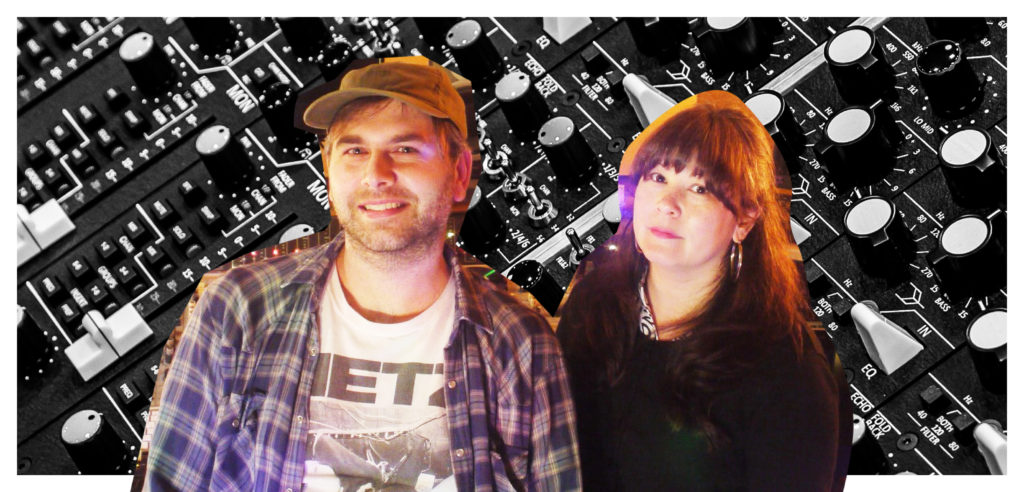
Can you tell us about your setup?
The Noise Floor is a retreat recording studio at our home on Gabriola Island, [so] we’re in a unique situation. Our home setup is an attached 1000-square-foot studio with two acoustically tuned tracking rooms and a control room with a Neotek console, RADAR24 recording system, and a bunch of outboard gear. We also have our bedroom setup, where we write and demo our own music. It consists of a 2-channel Focusrite interface, which allows us to record a microphone and a direct input into a very basic musician-friendly DAW called Mixcraft. We also use an Arturia Mini-Lab keyboard/midi controller and a Behringer 808 drum machine.
What are some tips you’d give to musicians who are new to home recording?
It’s easy to keep picking at your songs, second-guessing yourself to death, and constantly going back to try to improve the take, tone, or the mix. Learn to just let something be and be done with it.
What are some common mistakes artists make when recording at home?
We sometimes receive home recordings to finish mixing and often receive tracks that are recorded really quietly, which results in a lot of noise, which results in digital distortion. Not using consistent sample rates and file formats are a pain in the butt for engineers. Also, poor file management is annoying for everyone.
Who do you look to for inspiration in your own home recording techniques?
We once had Vancouver indie-pop legend, Nicholas Krgovich, do a residency in our cabin, recording his demos. He was working on songs that would make up his album, In an Open Field. Nic was incredibly dutiful to the hours he devoted to writing and recording. It was very inspiring to see the commitment it takes to prioritize making space around making your music and showing up to the muse.
Noble Oak
(Electronic Music Producer)
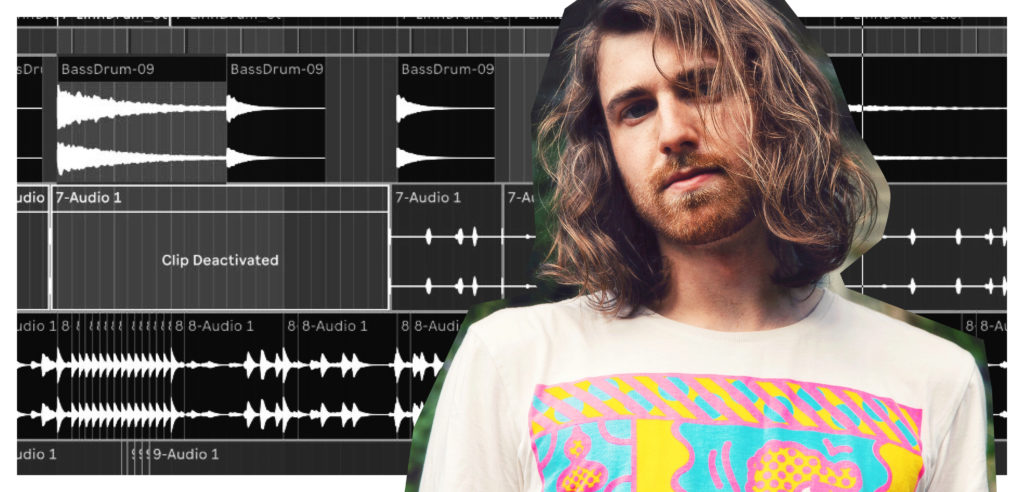
What is your setup when recording at home?
I’ve expanded slowly over the years: a Nord Stage, my Rhodes Piano, a SM7B microphone for vocals, a pair of Mojave MA100 condensers for instrument recording, an OB-6, MicroKorg, Martin acoustic guitar, and a Squier Telecaster. Recording and editing [are] done in either Ableton Live or Logic Pro and routed with an Apogee Ensemble.
What are your recording rituals? Do you have any snacks/refreshments on hand?
Just water really. You need to stay well-hydrated, especially if you sing! I’ll often work past the point of noticing I’m hungry, and take a break for a snack here and there. I work on songs whenever the mood appears so there’s no way to tell when and if I’ll need some sustenance.
What are some tips you’d give to musicians who are new to home recording?
Keep it simple, and try not to get more gear than you need. It’s easy to be thrown off by clutter, and it also feels really empowering to make something larger-than-life with a tiny set of tools.
Who do you look to for inspiration in your home recording techniques?
I’m continually reading Sound on Sound, Professional Sound, and various other publications reviewing new and old recording gear. The fun of recording from home is trying to emulate what a full studio can do but in a much smaller package.
What is one app that everyone needs?
In terms of computer applications, Ableton Live has been the best and fastest way to get an idea out of my head and onto digital paper. Some musicians have a very easy time generating and remembering full song ideas in their heads, but I’m unfortunately not one of them. If it’s not recorded quickly enough, it will disappear. A software that allows you to translate your idea into something you can hear back quickly will be a lifesaver.

